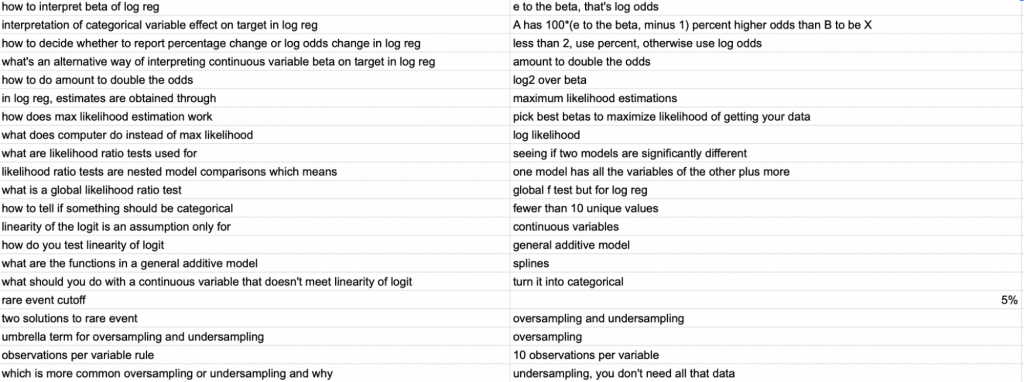As MSA students, we are asked to juggle a slew of tasks and projects that pull us in a million different directions. It’s often difficult to find time amid the onslaught of obligations to find time to study for our assessments. Many students use the flashcard website Quizlet to generate and store their cards. I love a good Quizlet cram as much as the next guy, but I also think Quizlet has a significant weakness when it comes to effective learning. How often should you review your cards? Once a week? That seems like too little, yet daily study sessions would seriously eat into the time you’ve allotted for your practicum.
The solution to this all-too-common conundrum is to use a Spaced Repetition System (SRS) for your flashcards. An SRS is an evidence-based method for studying flashcards in which cards are automatically assigned a due date based on whether you answer them correctly or incorrectly. If answered correctly, the card will be assigned a due date later in the future, whereas an incorrect answer results in the card being due much sooner. The motivation for this system lies in the idea that the most efficient way to encode information in long-term memory is to focus on the content that you have difficulty remembering.
Let’s work through an example.
Let’s say you have three cards for three different concepts. When you study the flashcards for the first time, you correctly answer Cards 1 and 2, but not Card 3. In this case, Cards 1 and 2 would be sent into the future, to be studied again tomorrow. Card 3, however, would be due again in ten minutes. Ten minutes from now, you correctly answer Card 3 and send it tomorrow. Tomorrow arrives, and you correctly answer Card 1, but incorrectly answer Cards 2 and 3. Having correctly recalled Card 1 twice in a row, it gets sent even further out this time, three days into the future. Cards 2 and 3, however, seem to be causing you problems. You’ll review them in ten minutes and see them again tomorrow.
As this process continues over the days and weeks leading up to your assessment, you’ll end up studying the cards that are more difficult for you significantly more often than the cards that you can breeze through. This will save you a significant amount of time, since you will only be studying the cards that you’re liable to recall incorrectly, rather than having to review the whole deck of cards every time you want to study. Perhaps more importantly though, you won’t have to study nearly as much in the days leading up to the exam, since you will have the bulk of the content nailed down thanks to your SRS.
You may be wondering, and fairly so, whether the time it takes to generate the cards from your class notes is worth the time that they would save you. My personal recommendation is to take your notes in card form, since SRS software can read in cards from an Excel spreadsheet. I’ve included a screenshot of my own flashcard class notes for reference.

The most popular SRS software is called Anki. It’s free to download, and they offer a mobile app with purchase. In my opinion, the user interface is highly advanced and technical, but not particularly user-friendly. Luckily, I’m an Anki user and I’m friendly, so if you’re interested in implementing an SRS for your own studies, please don’t hesitate to come ask me about them!
Columnist: Peter Andrews
